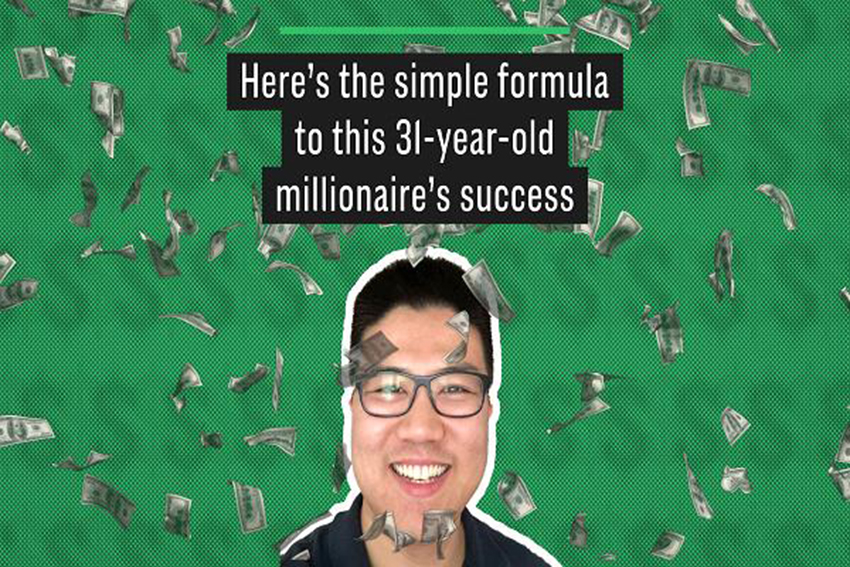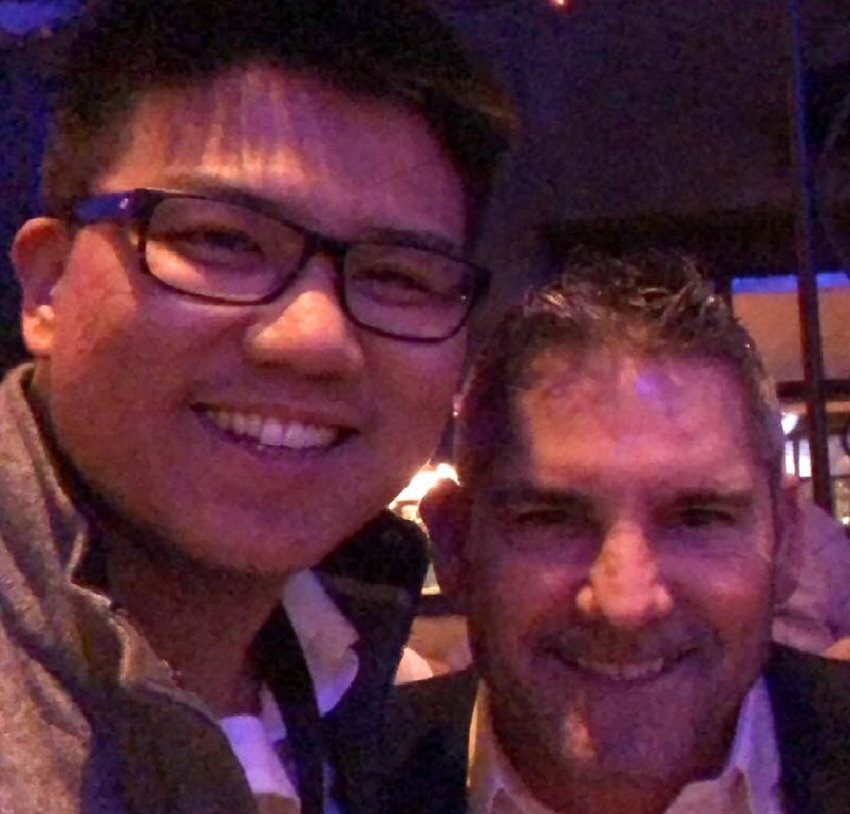31-Year-Old Self-Made Millionaire Reveals Formula For Success
Every time I had extra money, I kept throwing it in there

Photo Credit : CNBC
According to self-made millionaire Timothy Kim, you don't need to be intelligent in order to be wealthy. Instead, he says you just need to learn what highly successful people did to become rich and copy them.
"I'm not that smart, I was an average student and I probably have ADD," Kim tells CNBC Make It. "I just found the right people who've already done it and I just follow what they do."
Kim, 31, officially became a millionaire last year and was featured by Business Insider in November. Now with a net worth of $1.32 million, he runs the personal finance blog TubofCash.com where he hosts cash giveaways.
The millionaire investor attributes his rapid success to heeding the advice of highly successful people. In fact, he may not be a millionaire today if he hadn't followed the advice of a former professor while studying as an undergraduate at Biola University.
Kim says that his college business professor had become wealthy after making several successful investments in the stock market. One morning, the professor nonchalantly told the class that he had just lost $60,000 on a bad stock. However, he encouraged a then 19-year-old Kim and his fellow classmates to immediately invest and to "go in on the market."
"'[He said], 'This is a once-in-a-year, once-in-a-lifetime opportunity,'" says Kim. "''Nothing like this is going to happen in another 100 years. Just trust me and go all in right now.'"
Kim saw how successful his professor had become from making quality investments, and that a loss of $60,000 didn't seem to phase him, so he followed his professor's advice. Although he was only making minimum wage at the time working as a personal trainer and campus employee, he invested about $1,000 into the stock market.
After seeing a return on his investment, he was hooked. "Every time I had extra money, I kept throwing it in there," says the millionaire.
Once Kim's earnings hit the $3,000 mark, he put his money in a Vanguard account. "And then once I got to $10,000 in my Vanguard funds, I converted to admiral shares, which has the lowest fees," says Kim. "And then it really took off from there."
But even after becoming a millionaire, Kim says he still adheres to this simple formula, which is why he spent $70,000 over the course of six months on mentorship from highly influential people.
He points to real estate mogul and investor Grant Cardone, who has a multimillion-dollar real estate portfolio. "That's someone who's already made it and is successful," says Kim. "So why wouldn't I want to pay him to learn what he knows?"
 However, you don't have to pay for mentorship to receive quality advice, according to excerpts. Simply find someone who has the experience that you are looking to gain and who is willing to teach you what they know. This can be in person or through the work they have produced.
However, you don't have to pay for mentorship to receive quality advice, according to excerpts. Simply find someone who has the experience that you are looking to gain and who is willing to teach you what they know. This can be in person or through the work they have produced.
In fact, Kim notes that he uses free online resources such as YouTube and he reads books authored by successful people to learn what they know. "You don't have to reinvent the wheel," he says. "[If] somebody is already doing it so well, you just have to do what they're doing."
Kim may have a point. At a Columbia University event last year, billionaire Warren Buffett said the book The Intelligent Investor" changed his life. The investing manual was written by former Columbia Business School professor Benjamin Graham and published in 1949.
In the book, Graham discusses "value investing," or buying stocks when they are undervalued and holding them for a long period of time. This would later become a core tenet of Buffett's investment strategy.
"Shark Tank" star and Dallas Mavericks owner Mark Cuban also abides by this principle. In an interview with Money, the billionaire credits the drive to earn his first million to the book "Cashing in on the American Dream: How to Retire at 35" by Paul Terhorst. The author encourages readers to prioritize living below their means by downsizing their houses, cars and other expenses.
Even highly successful people have sought out expert advice to copy, when they're not skilled in a particular field or if they're starting out in their careers. Microsoft co-founder Bill Gates refers to billionaire Warren Buffett as his mentor on investments and Apple founder Steve Jobs took Facebook's Mark Zuckerberg under his wing during the early years of his company.
Primarily Published at : CNBC
-

Indigenous people march in Brazil to demand land demarcation
2024-04-24 -

Talks on global plastic treaty begin in Canada
2024-04-24 -

Colombian court recognizes environmental refugees
2024-04-24 -

Asia hit hardest by climate and weather disasters last year, says UN
2024-04-23 -

Denmark launches its biggest offshore wind farm tender
2024-04-22 -

Nobel laureate urges Iranians to protest 'war against women'
2024-04-22 -

'Human-induced' climate change behind deadly Sahel heatwave: study
2024-04-21 -

Moldovan youth is more than ready to join the EU
2024-04-18 -

UN says solutions exist to rapidly ease debt burden of poor nations
2024-04-18 -

Climate impacts set to cut 2050 global GDP by nearly a fifth
2024-04-18
